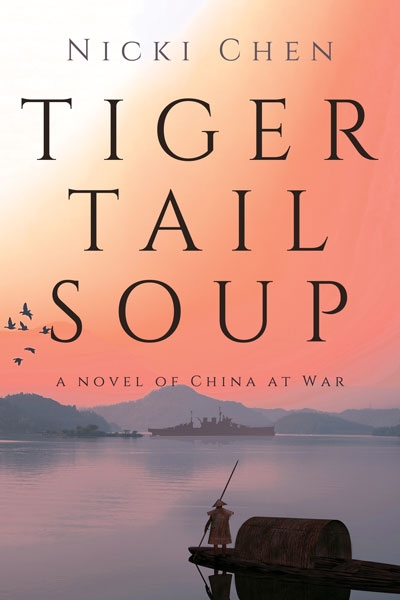
This year is the 8oth anniversary of D-Day, the Allied invasion of Normandy on June 6, 1944. Maybe you saw films from that day re-played—the soldiers pouring out of their landing crafts, wading ashore under heavy fire from gun emplacements on the cliffs. It wasn’t just a few brave men but tens of thousands of them.
In those days, they weren’t called The Greatest Generation. People seemed to have thought it was normal for a whole generation of men to be that brave. It wasn’t until 1998 when Tom Brokaw wrote a book and named it The Greatest Generation that the name was born. And it stuck.
My dad didn’t take part in the D-Day landing. He was already fighting in Europe. He took part in the landing at Salerno on Red Beach and fought in the bloody battles of Monte Casino and Bruyeres in Southern France.

Two of my dad’s brothers, most of his friends, and a large number of my classmates’ fathers fought in WWII, either in Europe or in the Pacific. After the war, the hottest place in town for my parents’ generation was the American Legion Club. It was the logical place for adults to socialize, drink, and dance on weekends.
So, what was it that inspired Tom Brokaw to call that generation “the greatest?”
Bravery
Obviously. They fought a long bloody war against two powerful, ruthless militaries. Dad was an army engineer, sometimes going beyond the front lines to build or destroy infrastructure. He was wounded in France. After six months in a French hospital, he rejoined the fight, crossing the Rhine into Germany.
Modesty
As Brokaw writes, “… they didn’t think that what they were doing was that special, because everyone else was doing it too.”
The work they did when they got home
It doesn’t make sense to compare the work they did with that of other generations. But Dad and his friends did set right to work building their lives after the war.
From his foxhole or tent, Dad was already sketching floor plans for houses he planned to build. As soon as he returned, he started building houses—his life’s work.

Families
This is indisputable. They married in record numbers and created a generational boom in babies: the Boomers.
Other Generational Names
The Millennials have a name. But what about Gen X, Gen Y, Gen Z, and the Alpha Generation? I wonder if anyone will write a book about one of them that’s popular enough to give rise to a name that’s more meaningful than a letter in one alphabet or another.
In the meantime …
Happy Father’s Day to fathers of all generations.
P.S. Women were also members of The Greatest Generation, but since today is Father’s Day, we’re celebrating the men.



Your photos are priceless. I know that your father’s generation was made of different stuff than today’s generations. Like Deb said, they came home and got on with life, not dwelling on what they’d done. In our world with social media that would never happen, we must know all now and promote it. 🫤
Today I read an article about the high number of suicides in the US military, even though they’re not at war. I don’t know what the cause is. I hope somebody will figure it out. It’s so sad. I guess we’re all a product of our environment and our time.
You’ve hit on what I’ve always considered the amazing part of those who fought in WW2 – that they came home and got to work living life, having families, and in the main, not saying much about what happened “over there”. And, in your Dad’s case, literally building for that new life.
Another thing I hadn’t thought much about until recently is that those young men grew up during the Depression. This past year I read The Boys in the Boat about the University of Washington crew that won a gold at the 1936 Olympics. The main character had a lot in common with my dad. Joe was deserted by his family when he was 15. At the same age, my dad decided to leave home and make his own way in the world. Both had a bad stepmother.
It’s interesting and also sad that most of the generation is gone.
They’ve gone, but some of us remember them still.
Imagine being sent back to fight AFTER spending SIX MONTHS in a foreign hospital. Amazing.
You look so much like your mom!
It does seem strange that my dad was sent back to fight after spending all that time in the hospital. But I see that the same thing is happening now in Ukraine.
Thank you for the compliment.
My granddad started off in the Pacific for the Battle of Midway, which was a hell of an intro to naval warfare. (I vaguely remember hearing he also was at D-Day, but am not entirely sure that the Navy moved officers from the Pacific to the Atlantic fleets, so that might not be true.) He did talk about Midway, though, and told me that, “if you weren’t killed or wounded, you were very, very lucky,” and that there were so many Japanese fighters in the sky, “it was like being at a turkey shoot.” Granddad was very, very lucky and knew it. When he was coming to the end of his life, he was emphatic about how fortunate he was to even have that life, because so many he knew and served with did not.
Fighting in that war and coming home again definitely would give a person reason to count his blessings.
Many veterans of WWII didn’t like to talk about their experience. On the other hand, I don’t think I asked. I suspect you were more curious and persuasive than many of us.
We’ve been to Monte Cassino and read about that ghastly part of the war. My husband’s best golfing buddy was in that battle on the other side as was his brother who was killed. He told my husband that the Italians didn’t have boots.
Since it was such a long, complex battle, I have no idea what part my dad played in it. According to Wikipedia, it’s been described as a Pyrrhic victory–55,000 Allied casualties, 20,000 German losses.
My Dad was a sergeant in the Royal Army Medical Corps and was in the D Day landings. 50 years later he went back with my mother and they had a great time. I was born in November 1944 but Dad was still in Europe. In April 1945 he was sent to Bergen Belsen concentration camp to assist with the liberation. He never saw me until I was 8 months old and never talked about Belsen. These men were quiet heroes. Great to remember them on Father’s Day.
I was born in May 1943. I didn’t see my dad until 1945. I think he also visited one of the concentration camps, but like your dad, he never wanted to talk about it. He never returned to Europe. When my sister studied in Spain, my mom and grandma visited her. Dad stayed home. He said he’d seen enough of the world during the war.
What a beautiful tribute, Nicki! What a great dad!
The soldiers came back heroes. (This war was so different from Vietnam and its aftermath.)
Although the history books talk of triumphant returns, our photo albums just show the next chapter in my dad’s life. He got together with his brother and started building houses.